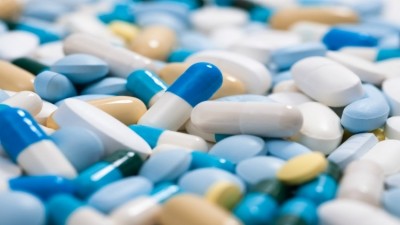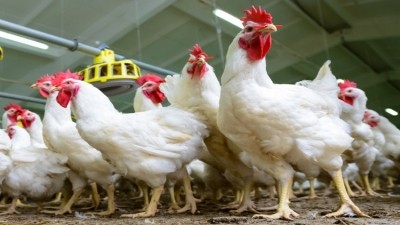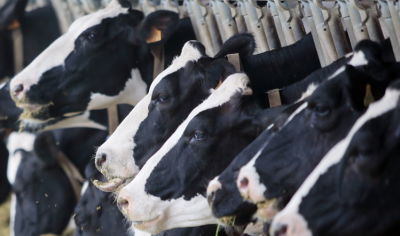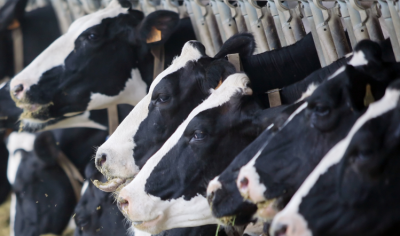UK pig industry reduces antibiotic usage in 2017
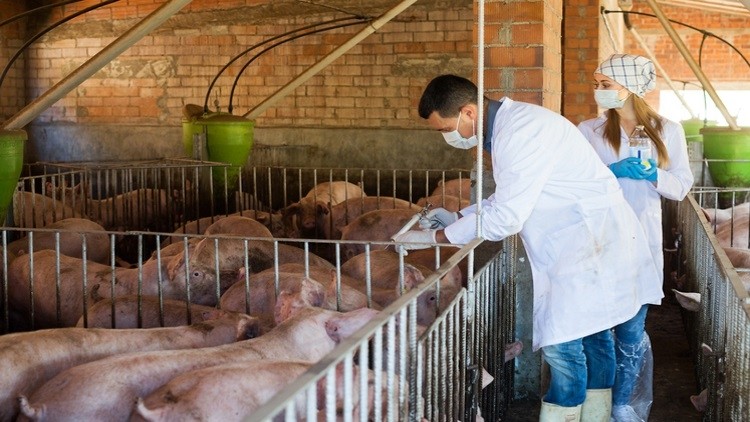
This marks more than a 50% total reduction over the past two years.
According to the latest data taken from the electronic medicine book (eMB), which represents 87% of pigs slaughtered in the UK, antibiotic usage on pig farms dropped from 183 mg/PCU to 131 mg/PCU within 12 months.
It comes just seven months after targets were announced by the Targets Task Force, set up by the Responsible Use of Medicines in Agriculture Alliance (RUMA), to reduce antibiotic usage in the pig industry by over 60% between 2015 and 2020.
The news has been largely welcomed by the pig industry, as well as RUMA, to help cut the use of antibiotics.
The Agriculture & Horticulture Development Board’s senior veterinary manager Mandy Nevel said: “This is a great industry effort, with all parties fully engaged and determined to demonstrate responsible use of antibiotics in pigs. We must keep up the momentum to reduce use further in order to achieve our target of 99 mg/PCU by 2020.”
Prof Peter Borriello, CEO of the Veterinary Medicines Directorate, said: “Congratulations to the pig sector on these impressive reductions in antibiotic use in 2017, which build on those already seen in 2016.
“These achievements are the result of high-level collaboration across the industry to deliver on a challenging and rigorous ongoing plan to reduce and refine antibiotic use, while maintaining the health and welfare of pigs.”
Christine Middlemiss, UK chief veterinary officer, said: “The reduction in antibiotic usage achieved by the UK pig industry over the last two years are excellent. This has been achieved by the sector working together and following a clear agreed plan of action, which is focused on responsible reductions alongside the prevention and management of disease.
“This approach is essential for the sustainability of British agriculture and will help to maintain the effectiveness of antibiotics in the future.”
President of the Pig Veterinary Society (PVS) Duncan Berkshire said: “PVS is pleased to see the recent results from the ongoing commitment to reduce the total use of antibiotics within the pig sector and would like to congratulate our members and pig producers on a reduction of over 50% in the last two years.
“These first steps have shown good progress towards the targets that have been set and we look forward to working with producers and the allied industries over the coming years.”
National Pig Association senior adviser Georgina Crayford said: “This figure demonstrates the continued hard work and commitment displayed by pig farmers, aided by veterinarians and other farm advisers, to use antibiotics more responsibly.
“We knew it would be challenging to meet the agreed reduction targets, but the pig sector is rising to that challenge and making progress every day. Nonetheless, the pig industry’s efforts will not stop here. There is further work to be done to reduce antibiotic use, such as improved collaboration between farmers to tackle endemic disease.”
Gwyn Jones, chairman of RUMA, added: “This is great news for the pig industry and a testament to the persistence and courage of pig producers and their veterinary surgeons in implementing sustainable reductions. Sector organisations should also be recognised for the tremendous leadership and support they have shown over the past three years.
“These latest results prove that the targets the pig sector set itself are both challenging and proportionate. Each year will be progressively harder to achieve and for this reason our foot must stay firmly on the pedal.
“The results also show us the importance of data. Small datasets are interesting, but can be misleading. In our complex supply chains, we need to shine a light on all areas and can only do that if we can see the whole picture.
“The good news is that as more usage records are logged through the change in Red Tractor rules, so we are seeing engagement with the issue increase and reductions continuing to happen.”
